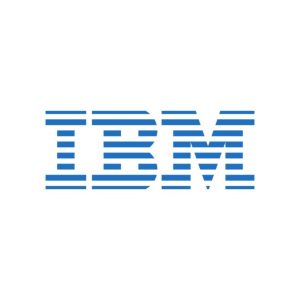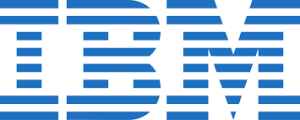- All
- Favorite
- Popular
- Most rated

Applying IBM Cloud Security Best Practices
In this course, you will explore security best practices for IBM Cloud®. You review how to establish security practices.

Logging Capabilities of IBM Log Analysis
This course introduces IBM Log Analysis. You will learn about the logging and alerting capabilities and components that will enhance your workflow and performance when using IBM Cloud.

Understanding Observability Automation
This course discovers the benefits and value of automated monitoring.

Common Storage Options
This course introduces the common storage options including Block, File and Object.

Using IBM Cloud Kubernetes Service
This course covers the use of IBM Cloud® Kubernetes Service to develop and deploy applications. It explores cluster access, as well as, planning, development, deployment, and testing the app.

An Introduction to IBM Cloud Satellite
This course provides and overview and foundation of IBM Cloud Satellite to both technical and non-technical audiences.

IBM Cloud Compute Options
This course provides an overview of the IBM Cloud® Bare Metal offerings, including IBM Cloud for VMware solutions.

Key Management
This course covers secure key management and secrets management. This course includes information on many IBM Cloud® services and best practices for key and secrets management.

Overview of Problem Management
This course introduces service management, problem management, and post incident review, and how SREs can implement rank-ordered actions to reduce toil.

Extending Applications through IBM Cloud Watson API Services
This course provides an overview of IBM Watson® AI Platform and its suite of tools.

Concepts and Tools to Troubleshoot IBM Cloud Code Engine
This course highlights the artchitecture, functionality, and troubleshooting strategies using IBM Cloud Clode Engine.

Architecture and Regulatory Requirements
This course explores the high availability configurations for SAP workloads.

SRE Responsibilities to CI/CD Pipeline
This course covers important components of the Continuous Delivery Pipeline, including SRE responsibilities, change management components and how to troubleshoot.

Motivation for IBM Cloud Satellite
Discover how IBM Cloud Satellite assists organizations in overcoming technical challenges and meeting business goals as you explore common use cases and review the benefits of IBM Cloud Satellite.

Manage Storage and Data Attributes
This course explains key storage metrics used to manage availability and resilience.

Manage trade-off between Change, Velocity, and Reliability
This course describes how change, velocity, and reliability relate to SRE and how the SREs have to manage velocity with system reliability.

Capabilities of Cloud Internet Services
This course introduces Cloud Internet Services. You will learn about the capabilities and components that will enhance your workflow through security, reliability and performance when using IBM cloud.

IBM Cloud AI-Ready Infrastructure Foundations Badge
The IBM Cloud AI-Ready Infrastructure Foundations badge is for those who have learned IBM's point of view and value as it relates to generative AI and watsonx services on IBM Cloud.

Implementing and Managing Security Policies on IBM Cloud
This course articulates how to implement and manage security policies on IBM Cloud.

Perform Operational Readiness Reviews on IBM Cloud
This course reviews when and how an Operational Readiness Review should be performed on IBM Cloud, along with SRE responsibilities.

Power Virtual Server Use Cases and Solutions
This course explores the common use cases for Power Virtual Server. The lessons focus on data center strategy optimization, business continuity planning topics such as DR and HA.

IBM Cloud Encryption and Key Management Services
This course introduces IBM Cloud Encryption and Key Management Services.

Immutable Infrastructure
In this course, you explore how IBM Cloud® Schematics and Terraform support using automation in DevSecOps deployments. You will also investigate the use of IaC in the DevSecOp practice.

Identity and Access Management (IAM)
This course reviews identity access management (IAM) and its components, including resource groups, dynamic access groups, and account management.
The Founding of IBM and Its Evolution Over the Years
IBM’s roots trace back to the early 20th century, when it was initially founded as the Computing-Tabulating-Recording Company (CTR) in 1911 through the merger of three companies that manufactured various devices, including punch card machines and time-keeping equipment. In 1924, the company adopted the name International Business Machines, which aligned with its ambitions to lead the global market in technological solutions. During the 1930s and 1940s, IBM expanded its influence by introducing automated tabulation machines, which became essential tools for businesses and governments. IBM’s success continued with its innovations in mainframe computers in the 1950s and 1960s, which solidified the company’s position as a leader in computing technology. The IBM 701, released in 1952, was the company’s first large-scale electronic computer, and it marked the beginning of IBM’s dominance in the mainframe market.IBM’s Notable Milestones
Throughout its history, IBM has consistently been a leader in groundbreaking technology. Some of the company’s most notable milestones include:- 1964: The launch of the IBM System/360, a family of mainframe computers that could be used for a wide variety of tasks. This innovation was a turning point in the computing industry, allowing businesses to invest in technology that could grow and adapt with their needs.
- 1997: IBM’s Deep Blue, a chess-playing computer, made history by defeating world chess champion Garry Kasparov, showcasing the potential of artificial intelligence.
- 2011: IBM’s AI-powered system, Watson, won Jeopardy! against human champions, further cementing IBM’s leadership in AI research and development.
- 2016: IBM became one of the first companies to provide cloud services with its IBM Cloud platform, which today remains one of the most widely used enterprise cloud platforms worldwide.
- 2020: IBM advanced its quantum computing efforts by launching the IBM Quantum Experience, a cloud-based platform that allows researchers and developers to access quantum computers.
IBM’s Educational Offerings and Certifications
IBM’s dedication to education is evident in the wide range of courses it offers across multiple domains of technology. The company’s IBM Skills Academy is an industry-leading educational platform that provides learners with in-demand skills. IBM’s courses on EdCroma include specialized training in:- Data Science: Master the fundamentals and advanced techniques of data analytics, machine learning, and AI.
- Cloud Computing: Learn to develop and manage cloud infrastructure using IBM Cloud and other industry-leading tools.
- Blockchain: Gain expertise in blockchain development and its applications in finance, supply chain, and cybersecurity.
- Cybersecurity: Learn about the latest threats and how to defend against them, leveraging IBM’s extensive experience in securing enterprise-level systems.
- Quantum Computing: Explore the future of computing with IBM’s quantum education programs, which provide hands-on experience with quantum algorithms and development.
IBM’s Approach to Learning
IBM’s educational philosophy is centered on continuous learning and skill development. As technology evolves, so do the demands of the workplace. IBM ensures that learners stay ahead of the curve by offering courses that reflect the latest trends and technological advancements. Courses are designed to be interactive and engaging, with hands-on projects and case studies that help students apply what they’ve learned to real-world scenarios. Additionally, IBM emphasizes the importance of industry collaboration. Many of the company’s courses are developed in partnership with leading academic institutions and industry experts. This ensures that the curriculum is not only academically rigorous but also aligned with the needs of the business world.Why Choose IBM as Your Educational Partner?
IBM’s legacy of innovation, combined with its commitment to education, makes it a top choice for learners who want to excel in the tech industry. By enrolling in IBM’s courses on EdCroma, students gain access to:- World-class instructors with decades of industry experience.
- Cutting-edge resources and tools for hands-on learning.
- Globally recognized certifications that enhance career prospects.
- A community of industry professionals and thought leaders who are shaping the future of technology.

